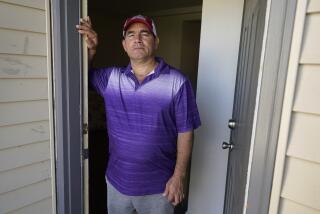It’s all quiet on the Miami front
- Share via
MIAMI — For Cuban exiles and emigres who have been waiting for Fidel Castro’s departure for decades, Tuesday’s announcement that he was retiring as president was greeted with more cynicism than jubilation.
“As far as I’m concerned, until they can show me a body in a casket, I’m never going to believe this is over,” Eddie Lopez, an exterminator and U.S.-born Cuban American, said as he made his pest control rounds in Miami Beach.
When Lopez’s parents moved to Florida in 1960, they, like many exiles of the era, expected to be back in their homeland before the next Christmas, he said. His mother kept a bag packed for years.
At Little Havana hangouts frequented by Cuban exiles who fled Castro’s revolution in the early years, there was no joyous dancing or chants of “the dictator is dead!” like in July 2006, when Cuba announced that Castro was suffering from an intestinal illness and had to hand governing responsibilities to his brother Raul.
Those celebrations caught the world’s attention but embarrassed moderate Cuban Americans.
This time outside the Versailles Restaurant, the most famous Cuban eatery in Miami, television crews outnumbered those who came to sip their morning cafecitas and pore over the strident exile journals published here in Spanish.
A few passing motorists honked in celebration of the news, but it was nothing like the raucous cacophony that greeted word in 2006 that Castro had temporarily stepped down, raising expectations that he was on his deathbed.
Miami Mayor Carlos Alvarez, who was born in Cuba, told journalists that he had been in touch with state emergency response officials, police and the Coast Guard as a precaution, but that “we’re not expecting anything, quite frankly.”
The mayor said Gov. Charlie Crist called to see whether the city needed help. He said he told Crist that Miami and other cities in South Florida were “well prepared” to deal with any consequences of a change in government in Cuba or a mass migration of Cubans. Alvarez said neither he nor public safety officials expected any unrest.
The voices of Miami’s most outspoken critics of Castro remained strident.
“It is important to realize that, as of this time, there has been no change in totalitarian Cuba,” said Rep. Lincoln Diaz-Balart, a Miami Republican whose Aunt Mirta was Castro’s first wife. “In totalitarian Cuba, Fidel Castro’s absolute power is not based on titles. The dictator’s written declarations have the effect of totalitarian decrees, whether signed with the title ‘commander in chief’ or ‘comrade,’ or simply with his name.”
Jose Basulto, founder of the Brothers to the Rescue air patrol that guided Cuban rafters to safety during the 1994 migration flood, urged the U.S. government to use the occasion of Castro’s departure from office to indict him in the deaths of four Brothers to the Rescue activists who were shot down off the coast of Havana in international airspace in 1996.
Sunday, the 12th anniversary of the deaths, is the day the Cuban National Assembly will gather to choose a new president.
--
More to Read
Sign up for Essential California
The most important California stories and recommendations in your inbox every morning.
You may occasionally receive promotional content from the Los Angeles Times.










